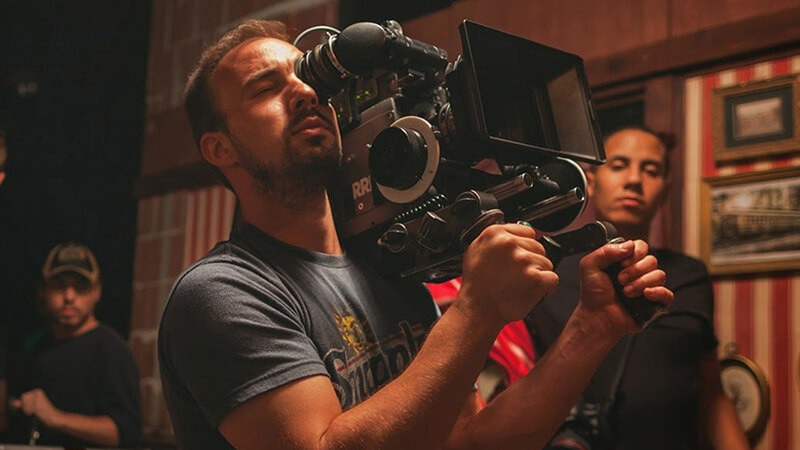Pro Advice
Launching Your Own Film Production Company: 5 Things to Know
If you’re a filmmaker seeking to grow beyond a single project, protect your personal liability, or simply increase credibility, then you might consider starting your own production company.
Owning your own business can be personally rewarding and even financially lucrative, but it takes a lot of work to get a company off the ground. It’s a good idea to research the market and assess priorities in other areas of your life before you commit to anything.
Once you decide to take the plunge, there are a few steps to incorporation that will ensure a smooth start to your business. We asked Film Production Course Director Kenny Beaumont to share his best tips for starting a production company.
Avoid shortcuts.
“Keep separate bank accounts for your personal and your business expenses,” says Kenny. “Avoid the temptation to use either one for the other. It makes things much easier at tax time,” It’s also smart to keep good records. If you document expenses and incidents as they occur, then you’re covered for liability and tax purposes.
Find a qualified attorney who works in entertainment law to help you set up a limited liability corporation (LLC). Incorporating your company offers protection for your personal assets should your company be sued for any reason. LLCs are a good incorporation option for most new companies because they offer the same limited liability as a corporation without the corporate structure. They’re also relatively inexpensive and easy to set up and maintain. Typically, each production operates under its own LLC, which in turn operates under a parent company.
Keep your overhead low.
Don’t spend money on things you don’t need—a company car, for instance. Flash doesn’t always translate to making a good impression. Solid work and professionalism will carry you farther. It might be tempting to splurge on top of the line equipment, but it’s better to invest in mid-level gear that will last at least five years.
Can’t afford to buy equipment outright? That’s okay, says Kenny. “What’s considered to be the best or hottest camera changes rapidly, so if you’re able to rent the latest gear as needed, you’ll appear to always be on the cutting edge and you’ll never get stuck financing an outdated piece of equipment.
Knowledge is power.
Having the right tools is important, but so is technique. Your education doesn’t end at graduation. Push yourself. Study the latest trends and industry practices in order to give yourself an edge in the market.
“Clients come to you because they need an expert, otherwise they’d do it themselves,” says Kenny. “And with the low cost of professional DSLR’s and editing equipment it’s getting easier for clients to do it themselves, so staying up to date on the latest tech and workflows is a way to separate yourself from the herd. By the same token, no one likes a know-it-all, so always be respectful and polite when sharing knowledge with the client”
Diversify. But not too much.
Not every project can be a passion project. In the beginning, you may have to take a job you’re less than thrilled about in order to keep your company afloat. Consider a wide variety of jobs even if the subject matter or genre lie outside your specific area of interest. This will challenge you, provide necessary income, and potentially make you better at what you do.
With that said, Kenny cautions against diversifying too much. “Taking on many different kinds of projects is valuable, but there’s something to be said for being an expert at one or two kinds of projects. ‘Be a jack-of-all-trades, but a master of ONE (instead of NONE)’ is what I like to say. You want to make yourself the ‘go-to’ guy in the community.”
Know your limits to best serve the customer.
Set realistic goals for growth and resist taking on more than you can handle. High production value projects like action films or music videos will require more manpower than wedding videography, so don’t promise something you can’t deliver.
Above all, says Kenny, keep it professional. “When you’re starting a business, you’re in it for the long haul and you’ll need to nurture relationships with customers so they come back again and again. So being friendly, professional and accommodating (within reason) is a good tactic to get return business.”
Whether you’re ready to apply or just want to learn more about Full Sail University, our Admissions Representatives are here to help. Call us or request more information.

